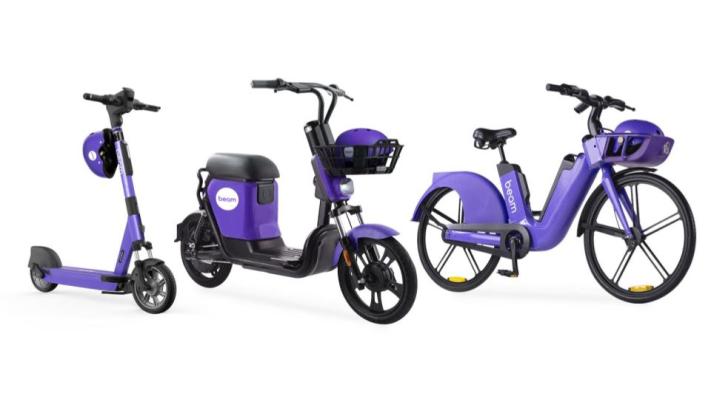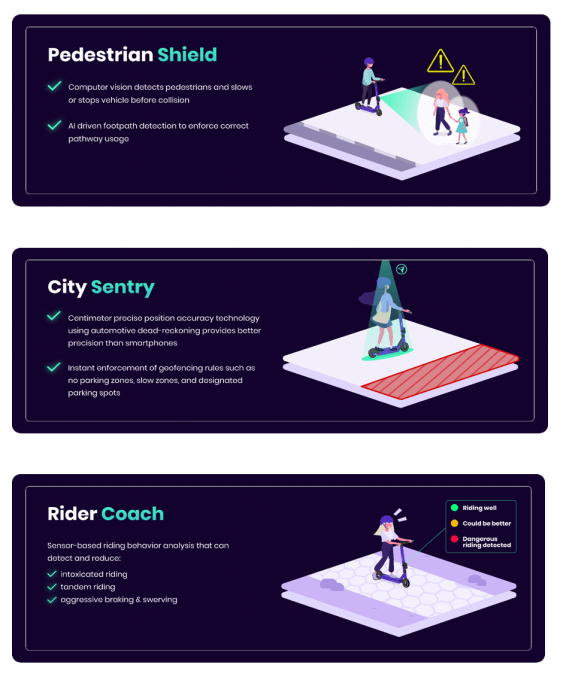

Beam, a Singaporean shared micromobility operator, announced today that it has raised $93 million in a Series B round to accelerate growth into new countries in Asia.
The fresh capital, which brings its total funding raised to $135 million, was led by Affirma Capital, with participation from Sequoia Capital India, Hana Ventures, ICT Capital, EDB Investment (EDBI), AC Ventures, RTP Global and Momentum Venture Capital. The Series B brings Beam’s valuation up into the triple digits, says CEO and co-founder of Beam Alan Jiang who declined to provide exact numbers.
Beam, which currently operates e-scooters and e-bikes in 35 cities across Malaysia, Thailand, South Korea, Australia and New Zealand, aims to spread into markets like Japan, Indonesia, the Philippines, Vietnam and Turkey.
In addition, the new capital will enable Beam to spur its deployment of a new 5th generation Beam Saturn e-scooter, which the company intends to start rolling out in the second half of this year. The next-gen scooter will come with an updated version of Beam’s safety platform, dubbed Micromobility Augmented Riding Safety (MARS), that helps protect pedestrians and enhance local governments’ control over where e-vehicles can park or ride, says Jiang.
Existing technologies within the platform include dead reckoning and on-edge geofencing, but the 5th gen Saturns will have a feature called Beam Pedestrian Shield, ” an onboard AI camera that can instantly and accurately detect pedestrians to prevent collisions and detect footpaths to automatically reduce vehicle speed or even prevent riding completely,” according to Deb Gangopadhyay, chief technology officer of Beam.
Beam says its on-board camera with computer vision will be rolling out at scale by Q3 this year. The company initially will be piloting the onboard camera technology, which is developed in collaboration with its undisclosed R&D partner, a spokesperson at Beam told TechCrunch.
For example, American micromobility company Spin is working with Drover AI, a computer vision startup, to pilot camera-based safety systems in a few markets, and European operator Voi is doing the same with Luna in the U.K.
New tech aside, the Saturn will also feature 12-inch wheels that are 20% larger than the average e-scooter wheels combined with hydraulic suspension. The Saturn has fully swappable batteries with sufficient capacity for 110km of riding range, double the average e-scooter battery capacity, to further improve sustainability, according to the company.
Beam also plans to add a new e-moped to its vehicle portfolio, the Beam Pluto, in the second half of this year, and expects e-mopeds to comprise up to one-third of its fleet over the next two years, Jiang said in an email interview.

Beam’s MARS technology
Beam’s revenue has seen 15 times growth since 2020, says Jiang, despite experiencing mobility restrictions caused by the Covid-19 pandemic, but the CEO didn’t provide a baseline for that growth. When asked about tightening regulations on micromobility in some Asian countries, Jiang told TechCrunch that Beam works very closely with regulators in all geographies the company operates in to provide safe and sustainable shared micromobility and Beam rebalances vehicle assets between geographies depending on deployment opportunities. Micromobility is broadly being recognized as an indispensable mode of transport almost all over Asia, with the corresponding regulatory frameworks getting more mature, he noted.
“Our goal is to shift ‘single person journeys’ onto shared small electric vehicles, which are step function more environmentally friendly for cities and cost-efficient for consumers,”Jiang told TechCrunch.
This article has been updated to reflect new information from Beam.